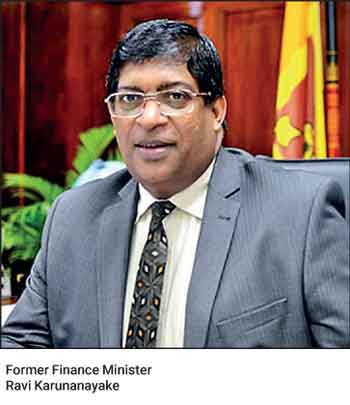Monday Feb 16, 2026
Monday Feb 16, 2026
Saturday, 15 June 2024 01:20 - - {{hitsCtrl.values.hits}}
 The Government has taken a multi-sectoral approach to reduce the risks and impacts of floods experienced in the country as a result of stormy monsoon rains affecting thousands of families and killing at least 30 people recently.
The Government has taken a multi-sectoral approach to reduce the risks and impacts of floods experienced in the country as a result of stormy monsoon rains affecting thousands of families and killing at least 30 people recently.
According to Sri Lanka’s Disaster Management Centre (DMC) over 253,500 persons from more than 66,900 families had been affected. More than 40 houses were completely destroyed and over 4,000 partially damaged.
The Western, Sabaragamuwa, and North Western Provinces, and the Galle, Matara Districts in the South, were hit by heavy rain, resulting in a number of major rivers the Kalu, Gin, Nilwala, and Kelani overflowing.
Several villages and paddy fields were inundated in the Southern Province, compelling people to take shelter in schools and temples.
Sri Lanka incurs Rs. 50 billion ($ 313 million) in annual disaster losses related to housing, infrastructure, agriculture, official data shows.
Of this amount, damages from floods was around Rs. 32 billion, cyclones and high winds Rs. 11 while droughts and landslides caused Rs. 5.2 billion and Rs. 1.8 billion in damages respectively.
The frantic situation facing flood affected people is a direct result of the failure of successive governments to tackle basic infrastructure issues and implement long term sustainable flood management programs, policies and legislations, former finance minister Ravi Karunanayake said.
Citing an example he noted that he has introduced a natural disaster insurance scheme via national insurance trust fund board with foreign reinsurer allocating Rs. 330 million from 2016 budget with the consent of the then Prime Minister Ranil Wickremasinghe
It had been able to pay Rs. 15.8 billion as natural disaster compensation in 2016 and Rs. 17 billion by allocating Rs. 590 million from the 2017 budget without burdening the treasury, he claimed.
He disclosed that a new tax called the Crop Insurance Levy has been charged from banks, finance and insurance companies with a view to covering damages suffered by the farmers due to a series of natural disasters at that time.
The levy amounting to 1% of these institutions’ after-tax profit has been remitted to an account maintained and administered by the NITF. All these pragmatic measures and the national insurance scheme are now not in existence, he added.
Sri Lanka is facing catastrophic consequences due to non-implementation of strategic city development projects and river diversion irrigation and flood control schemes initiated during 2015 and 2019 periods.
Karunanayake who was spearheaded in flood relief campaigns in the Western Province especially in Colombo and suburbs voluntarily, noted that the impact on flood was most heavily on the poor and those people were suffering because of not continuing flood management initiatives launched in 2015- 2016 by the then Government subsequent to heavy flooding.
He emphasised the need of pragmatic plans that cover the whole country, particularly the flood prone areas for the benefit of long-suffering people living there and these plans should be implemented by enacting laws to make it everlasting and sustainable.
The Government machinery comprising agencies connected to disaster management, meteorology, irrigation and other relevant institutions should be revamped making officials more efficient and duty conscious providing intensives for them while taking disciplinary action against saboteurs, he emphasised.
The Government will initiate sustainable relief program to alleviate the sufferings an mitigate the impact of floods by helping 87,000 poverty-stricken families living shanties or small houses at 1,360 settlements with 55,865 homes without basic facilities in Colombo to lead comfortable lives with self-reliance on the directions of President Ranil Wickramasinghe.
The President also detected relevant authorities not to allow new construction along the banks of the Kelani River, immediately remove all illegal constructions, suspend all ongoing landfilling activities, and to repair and restore the drainage systems.
Karunanayake said that one of the major issues for not providing Government relief for flood affected people was the acts of sabotage by few officials with political agendas adding that there were complaints of distributing unhygienic food parcels to people living in make shift camps.
A plan was devised in 2019-2020 to upgrade the existing pumping stations and build new stations under a $ 320 million project aimed at setting up an efficient flood protection system for the Colombo city while improving roads and solid waste disposal.